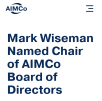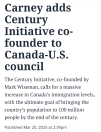Lutnick Says Trump Will Renegotiate Trade Pact With Canada, Mexico Next Year | ZeroHedge
ZeroHedge - On a long enough timeline, the survival rate for everyone drops to zero
Another year of breaking the Prime Banker’s balls.The agreement requires that 75 percent of automobile components be made in the United States, Mexico, or Canada for a vehicle to qualify for tariff-free treatment. The trade agreement also mandates that up to 45 percent of parts and components be made by workers earning at least $16 per hour, according to the U.S. Trade Representative’s office.
It also includes a provision requiring the three nations to review the deal every six years from its enactment.
In an interview with CBS News that aired on July 20, Lutnick said that it would make “perfect sense” for Trump to renegotiate the deal as part of an effort to protect U.S. workers.
“He wants to protect American jobs. He doesn’t want cars built in Canada or Mexico when they could be built in Michigan and Ohio. It’s just better for American workers,” he told CBS’s “Face The Nation.”
Lutnick said that about 75 percent of imports from both countries are covered under the USMCA, which exempts those imports from tariffs.
“I think the president is absolutely going to renegotiate USMCA, but that’s a year from today,” the commerce secretary said.
Lutnick noted that the United States will continue to engage in trade negotiations with other nations even after the new tariff rates take effect.
“Nothing stops countries from talking to us after August 1, but they’re going to start paying the tariffs on August 1,” he said.
Trump told Fox News in October 2024 that he plans to invoke the six-year review provision of the USMCA upon taking office for a second term, pledging to make it “a much better deal.”
Since returning to the White House for a second term, Trump has imposed a universal 10 percent baseline tariff on U.S. trading partners, alongside reciprocal tariffs announced in April that vary depending on each country’s trade barriers with the United States. Initially, he applied a 90-day pause on most of these reciprocal tariffs and later extended that reprieve to Aug. 1 through an executive order.
Upvote
17



